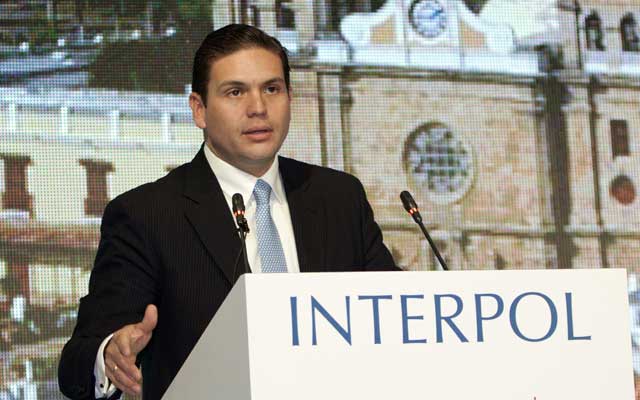Don’t Look to Hollywood for the Truth About Interpol
Ted Bromund /
This week on the big screen, martial arts master Jason Statham tangles with James Franco in Homefront. Statham’s on-screen backstory? He’s a British Interpol agent who retires to rural Louisiana, where he runs afoul of Franco and his gang. As a story, it’s not bad. But as a depiction of Interpol, it’s laughable.
Contrary to what you’ve seen at the movies, Interpol isn’t an international police force. It doesn’t issue mandatory international arrest warrants. And its agents don’t carry guns. Interpol is basically a bulletin board where national police forces around the world can post their wanted notices and requests for information. Some nations have voluntarily decided to give these requests binding legal force. Wisely, the United States has not. We are free to decide what, if anything at all, we want to do with any Interpol communication.
As a recent Heritage Foundation report demonstrates, in a world with many irresponsible international organizations, Interpol is an exception. It is founded on national sovereignty, its constitution (in theory) bans it from involvement in political or religious disputes, and it serves the valuable purpose of making it harder for terrorists and criminals to evade capture by fleeing from one nation to another. Unlike the U.N., it has done nothing to promote gun control.
But the problem with Interpol is that it treats all of its members equally and therefore assumes that all of their requests for help are equally valid. That’s a reasonable assumption to make about Canada, Japan, the U.S., South Korea, Britain, or Poland. But it’s not reasonable to make the same assumption about Russia, Venezuela, Cuba, and Iran. As Fair Trials International has revealed, dictatorships have learned that they can skirt Interpol’s constitution and use it to harass innocent dissidents, businessmen, journalists, and opposition leaders.
The case of Georgian reformer Zurab Adeishvili illustrates this problem. Adeishvili was a leading member of the pro-Western government of Mikheil Saakashvili. Just before the elections of October 2012 that resulted in the defeat of Saakashvili’s party and the victory of the pro-Russian Georgian Dream party, Adeishvili was accused of responsibility for abuses in the prison system, an accusation that likely played a role in the election’s outcome.
In late 2012, Adeishvili was charged in absentia with an array of crimes. Many Western observers—including five U.S. Senators—expressed serious concerns about the new regime’s investigation of Georgian opposition leaders from the former government, but in mid-November 2013, Interpol circulated Georgia’s request for Adeishvili’s arrest and extradition.
It is, of course, impossible to determine the question of Adeishvili’s innocence or guilt outside a courtroom that conducts a fair and open trial. But there is ample reason to fear that the case is predominantly political, and that is supposed to stop Interpol from acting. It has not. Many other pro-Western politicians, human rights campaigners, and unlucky businessmen—including several American citizens—have similarly been targeted through Interpol by autocratic regimes.
As Heritage demonstrates in its report, U.S. membership in Interpol is in our national interest, and Interpol does many valuable things. But that should not blind us to the way it is being misused by the autocracies or prevent us from protecting those affected by these abuses while taking steps to expose and end them. If we do not, Interpol risks becoming just another irresponsible international organization.

